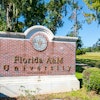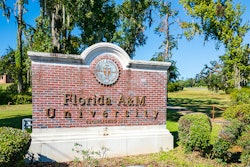A study by two economists gives more reasons for Blacks to attend traditionally White institutions over historically Black colleges and universities, further fueling the debate about the relevancy of the HBCUs.
The economic gains earned by Blacks who attended a historically Black institution, as opposed to Blacks who attended traditionally White institutions, declined dramatically from the 1970s to the 1990s, according to “The Causes and Consequences of Attending Historically Black Colleges and Universities,” by Drs. Roland G. Fryer and Michael Greenstone.
Fryer says data he and Greenstone collected seems to lean toward improvements by traditionally White institutions in educating Blacks being a big part of the reason why the decline in wages for HBCU alums exist.
“We tried to explore a lot of ways [this could be possible] in the papers,” says Fryer, an assistant professor of economics at Harvard University. “We looked at funding. That’s not it. Then we looked at the types of students. That’s not it. The only thing that seems even plausible is that historically Black institutions have not declined, it’s that traditionally White institutions have enhanced in educating Black students.”
In the 1970s, students attending HBCUs had an 11 percent advantage over their Black counterparts at traditionally White institutions in terms of economic gains. By the 1990s, Blacks at HBCUs were behind 14 percent in terms of salary.
Fryer says he found through his research that, in the 1970s, two-thirds of Blacks attending HBCUs said they would go to the same school again, and the percentage stayed the same in the 1990s. In the 1970s, just 46 percent of Blacks at traditionally White institutions said they would attend their university again. By the 1990s, that number grew to 70 percent.
“The statistics are consistent with HBCUs, they have not gotten worse over time,” Fryer says. “It’s that traditionally White institutions have gotten better in educating Black students.”














